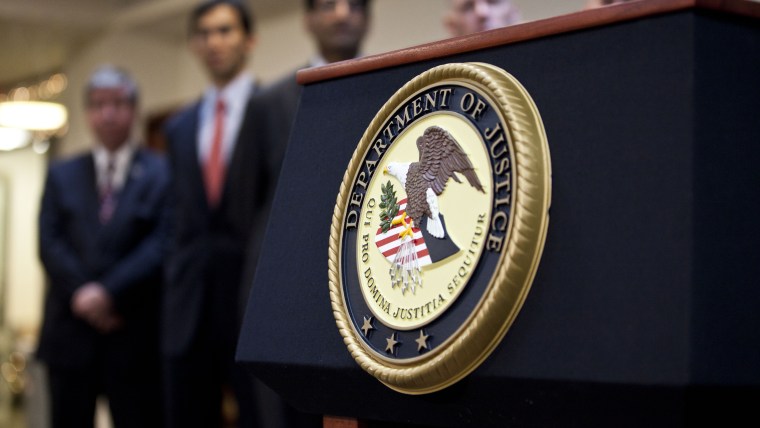Serious problems with the private-prison industry are not new, but they're not widely known to the public. In general, reports, no matter how striking, are limited to more liberal coverage from the likes of Mother Jones, The Nation, and John Oliver's HBO show.
But officials in the Obama administration have also noticed, and today, the Washington Post reports that the Department of Justice is moving forward with a plan to "end its use of private prisons after officials concluded the facilities are both less safe and less effective at providing correctional services than those run by the government."
Deputy Attorney General Sally Yates announced the decision on Thursday in a memo that instructs officials to either decline to renew the contracts for private prison operators when they expire or "substantially reduce" the contracts' scope. The goal, Yates wrote, is "reducing -- and ultimately ending -- our use of privately operated prisons." "They simply do not provide the same level of correctional services, programs, and resources; they do not save substantially on costs; and as noted in a recent report by the Department's Office of Inspector General, they do not maintain the same level of safety and security," Yates wrote.
Yates told the Post, "The fact of the matter is that private prisons don't compare favorably to Bureau of Prisons facilities in terms of safety or security or services, and now with the decline in the federal prison population, we have both the opportunity and the responsibility to do something about that."
The change comes on the heels of a critical Inspector General's report (pdf), released last week, which found privately run prisons were generally less safe -- for prisoners and staff -- than the federal Bureau of Prisons' facilities.
It's worth noting that the change will be gradual. The Post's report added that the DOJ "would not terminate existing contracts but instead review those that come up for renewal. She said all the contracts would come up for renewal over the next five years."
Of course, between now and then, there will be a change in the White House, though it's worth noting that Hillary Clinton's platform also calls for ending private prisons. From the campaign website: "Hillary believes we should move away from contracting out this core responsibility of the federal government to private corporations. We must not create private industry incentives that may contribute -- or have the appearance of contributing -- to over-incarceration."
NBC News' Pete Williams' report added that today's announcement applies specifically to federal prisons, and "states that rely on private prison contractors are not affected by the Justice Department's move."
Still, it's a major criminal-justice development that few saw coming. Currently, private prisons contract with the federal government to house roughly 12% of the federal inmate population, making this a major shift in federal policy.
At this point, congressional Republicans have not responded to the news in earnest, though it's likely GOP lawmakers, who generally support privatization of practically everything, will not be pleased.
